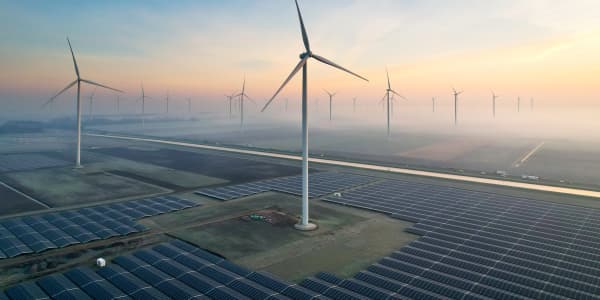
Wuthering Heights, East of Eden, To Kill a Mockingbird: getting lost in the twists and turns of a great novel is a pastime enjoyed by millions the world over.
But while the plots of such timeless classics remain the same, the technology we use to buy and consume them has transformed. Today, we can read books on a range of devices, from phones and tablets to desktops and e-readers.
With their slick interfaces and speedy delivery, online businesses such as Amazon and eBay have shaken up the bookselling market. Their models have made it possible to purchase books from the comfort of our homes with just a few clicks, often at a fraction of the price compared to a "bricks and mortar" store.
Like many other retailers, Waterstones — which operates hundreds of bookstores in the U.K. — has faced increasingly intense competition from online sellers in recent years.
Its managing director, James Daunt, joined the business in 2011. How is innovative technology — machine learning, artificial intelligence (AI), big data and robotics — going to transform Waterstones in the future?
"The high street that you see, the high street shop that you see today, is not going to change greatly, particularly a bookshop like ours — we're going to continue selling books because it is a wonderful product," he told CNBC in comments broadcast this week.
Daunt stressed the importance of human interaction to his business and how the way books are bought and sold required a decidedly human touch. "How they're chosen, how they're displayed, a human's going to do that. The customer service is going to be by a human. Anybody who doesn't do that — who goes to robotics, who goes to self-service — is going to die."
Changes in the business would still take place, however. "What we are going to do is become extraordinarily efficient in how we get the books here, how our supply chain is dealt with, how we communicate with you, how we tell you about things," Daunt said.
He added that while the business would embrace technology, it would do things that customers want, such as putting Wi-Fi in stores. The business, he said, was always trying to work out how to make its shops "the nicest possible place in which to spend time."
"We've returned to those core values of bookselling and… have done so with increasing enthusiasm, which has translated into ever better sales."




